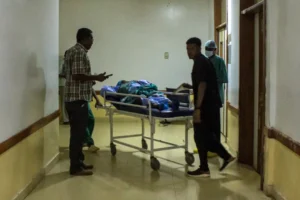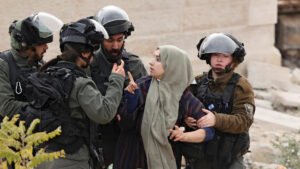ROME, Italy
May 9, 2018
Countries of the Near East and North Africa (NENA) region face numerous common challenges to achieving improved food security, nutrition and inclusive agricultural development. Recent conflicts and civil instability in some countries of the region as well as rapid population growth, increasing urbanisation, low growth in food production, scarce and fragile natural resources and the threat of climate change have been compounding the situation, the UN’s Food and Agriculture Organization (FAO) warned yesterday.
“Building resilience and sustaining peace are key to attain zero hunger and improve people’s well-being in the NENA region. Without this, the region cannot end hunger, achieve food security and improved nutrition and promote sustainable agriculture, which are key to achieving the Sustainable Development Goals (SDGs) by 2030. In the presence of hunger, every other human need falls through,” said Abdessalam Ould Ahmed, FAO Assistant Director General and Regional Representative for the NENA.
This came during FAO’s 34th Session of the Regional Conference for the Near East (#NERC34), today, where around 150 participants from government ministers and delegations from all countries of the region as well as representatives from civil society organizations and the private sector are gathering to chart out a roadmap for future work on shared food security challenges.
NENA Regional Initiatives
“FAO has stayed and delivered in countries riddled by conflicts. Our teams have worked tirelessly to advance the resilience agenda, supporting not only emergency operations but also sustainable livelihoods, capacity building and sustainable management of natural resources,” added Ould Ahmed during his opening speech in NERC34.
FAO’s work in both conflict and non-conflict countries has been under the framework of the three regional initiatives: water scarcity, small-scale family farming, and building resilience for food security and nutrition. Since their launch, the regional initiatives have guided the work of the organization in NENA and have provided a reference for the country programming frameworks. Support to the members countries have come in many forms, namely, advocacy, policy developmnet and capcity building, exchange of knowledge and experiences, and support to country-specific projects and programmes.
Agroecology, Agriculture Transformation, and One Health
The conference’s agenda also discusses the agricultural transformation in the region and the challenge of youth employment and migration; agroecology and adapting to climate change in arid and semi-arid areas; the challenge of sand and dust storms in NENA; and regional cooperation to address transboundary plant, animal and fish pests and diseases through the One Health approach. “These are matters that are high on the FAO global agenda but are also of particular relevance to the region and each one of our member countries,” said the Assistant Director General.
Parternships
“The immensity of the challenges facing the region requires bold and multidimensional partnerships. In this context, FAO’s regional office is expanding and strengthening its partnerships with regional and international institutions,” stated Ould Ahmed. Currently, FAO is working closely with the League of Arab states, Arab Organization for Agriculture Development (AOAD), UN Economic and Social Commission for Western Asia (ESCWA), World Food Programme (WFP), World Health Organization (WHO), United Nations Children Fund (UNICEF), International Center For Agricultural Research In The Dry Areas (ICARDA), International Centre for Advanced Mediterranean Agronomic Studies (CIHEAM), International Center for Biosaline Agriculture (ICBA), and the The Khalifa Award for Education, amongst many others, on advancing the SDGs in the region.
SDG2: Zero Hunger
NERC34 is set within the framework of achieving the SDGs, particularly SDG 2 Zero Hunger. FAO Director-General, José Graziano da Silva, and FAO’s Special Goodwill Ambassador for Zero Hunger for NENA, Darine El-Khatib, will participate in a Ministerial Roundtable on Zero Hunger on Thursday May 10 and will examine with the attendees the challenges to achieving Zero Hunger in conflict zones, and develop recommendations for strengthening collective action.
Celebrating 40 Years of Country Representation in NENA
On the sideline of NERC34, FAO will be celebrating the 40th anniversary of nine country representations in the region through a photo exhibition, highlighting important milestones and success stories between member countries and the Organization.
Distributed by APO Group
|





